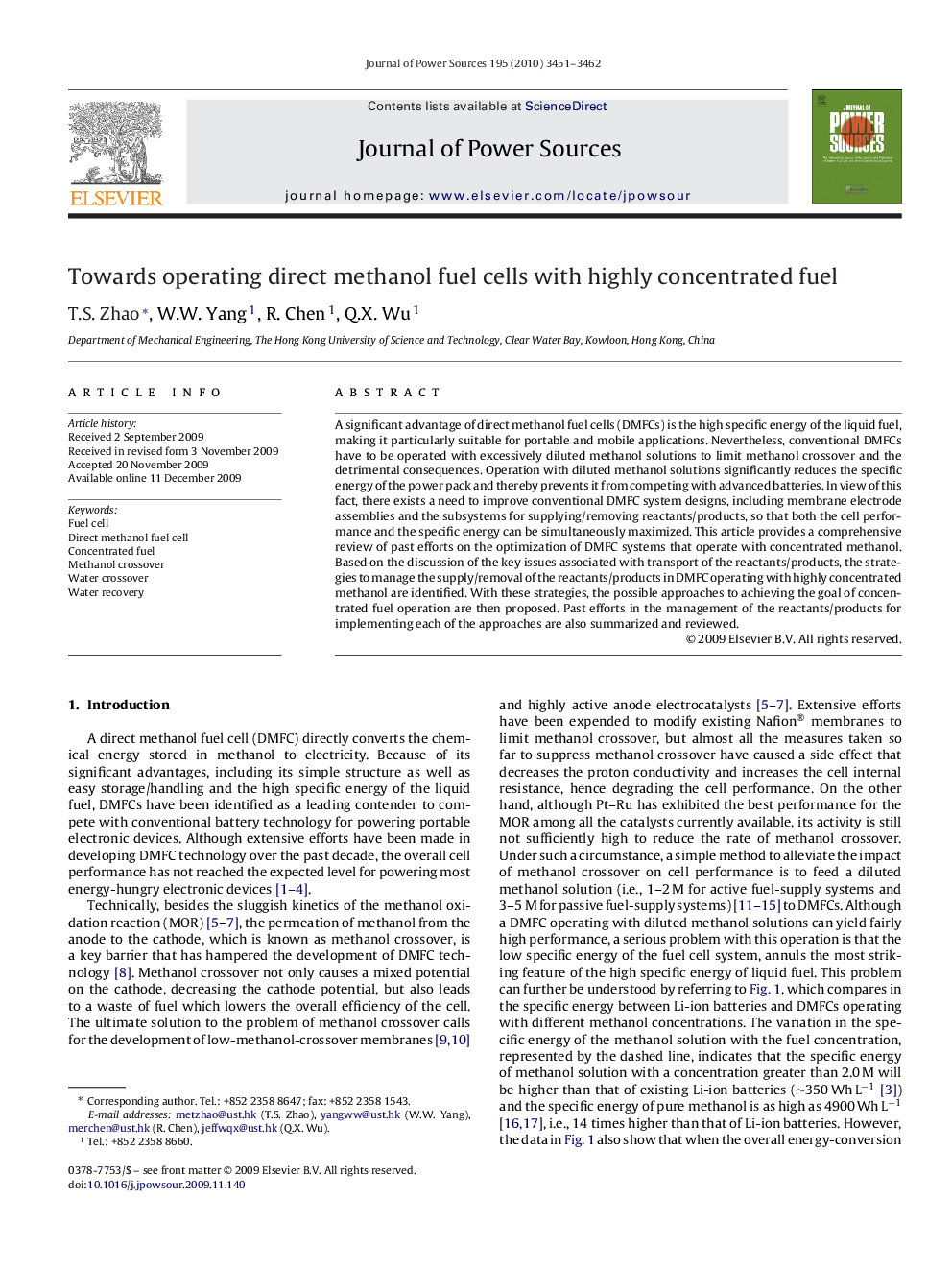| Article ID | Journal | Published Year | Pages | File Type |
|---|---|---|---|---|
| 1289514 | Journal of Power Sources | 2010 | 12 Pages |
A significant advantage of direct methanol fuel cells (DMFCs) is the high specific energy of the liquid fuel, making it particularly suitable for portable and mobile applications. Nevertheless, conventional DMFCs have to be operated with excessively diluted methanol solutions to limit methanol crossover and the detrimental consequences. Operation with diluted methanol solutions significantly reduces the specific energy of the power pack and thereby prevents it from competing with advanced batteries. In view of this fact, there exists a need to improve conventional DMFC system designs, including membrane electrode assemblies and the subsystems for supplying/removing reactants/products, so that both the cell performance and the specific energy can be simultaneously maximized. This article provides a comprehensive review of past efforts on the optimization of DMFC systems that operate with concentrated methanol. Based on the discussion of the key issues associated with transport of the reactants/products, the strategies to manage the supply/removal of the reactants/products in DMFC operating with highly concentrated methanol are identified. With these strategies, the possible approaches to achieving the goal of concentrated fuel operation are then proposed. Past efforts in the management of the reactants/products for implementing each of the approaches are also summarized and reviewed.
